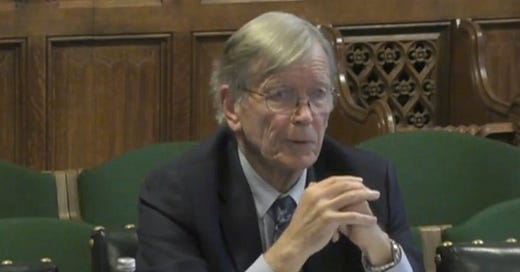Two recent reports on human rights are “almost like ships that pass in the night”, a former justice of the Supreme Court said yesterday. Lord Carnwath of Notting Hill was referring to the government’s consultation paper on reforming the Human Rights Act 1998 and the report of the independent Human Rights Act review chaired by Sir Peter Gross. Both were …
Keep reading with a 7-day free trial
Subscribe to A Lawyer Writes to keep reading this post and get 7 days of free access to the full post archives.



